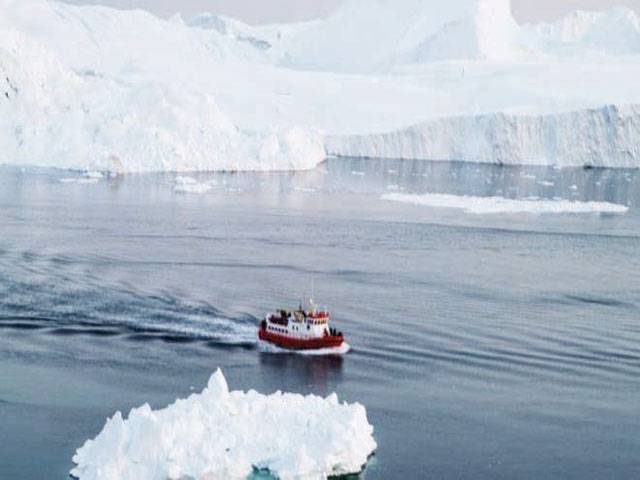LONDON-The signs and impacts of global warming are speeding up, the latest science on climate change, published ahead of key UN talks in New York, says. The data, compiled by the World Meteorological Organization (WMO), says the five-year period from 2014 to 2019 is the warmest on record.
Sea-level rise has accelerated significantly over the same period, as CO2 emissions have hit new highs.
The WMO says carbon-cutting efforts have to be intensified immediately. The climate statement is a pull-together of the latest science on the causes and growing impacts of unprecedented levels of warming seen in recent years.
Recognising that global temperatures have risen by 1.1 degrees C since 1850, the paper notes they have gone up by 0.2C between 2011 and 2015. This is as a result of burgeoning emissions of carbon, with the amount of the gas going into the atmosphere between 2015 and 2019 growing by 20% compared with the previous five years.
The average rate of rise since 1993 until now is 3.2mm per year. However, from May 2014 to 2019 the rise has increased to 5mm per year. The 10-year period from 2007-2016 saw an average of about 4mm per year.
“Sea-level rise has accelerated and we are concerned that an abrupt decline in the Antarctic and Greenland ice sheets, which will exacerbate future rise,” said WMO secretary general Petteri Taalas.
“As we have seen this year with tragic effect in the Bahamas and Mozambique, sea-level rise and intense tropical storms led to humanitarian and economic catastrophes.”
The report also highlights the threats to the oceans, with more than 90% of the excess heat caused by climate change ending up in the waters. The WMO analysis says 2018 had the highest ocean heat content values on record.
The study underlines the fact that wherever you look on the planet right now, the story is the same: human-induced warming is impacting the scale and intensity of extreme weather events such as heatwaves and wildfires.
“Climate change due to us is accelerating and on a very dangerous course,” said Prof Brian Hoskins, chair of the Grantham Institute, Imperial College London, and professor of meteorology, University of Reading.
“We should listen to the loud cry coming from the schoolchildren. There is an emergency - one for action in both rapidly reducing our greenhouse gas emissions towards zero and adapting to the inevitable changes in climate.”
Friday, April 19, 2024
Climate change ‘accelerating’, say scientists

3:56 PM | March 28, 2024
4:14 PM | March 23, 2024
Opposition objects to oath-taking of MNAs amid lawlessness
5:15 PM | April 19, 2024
Electioneering to end on Friday night ahead of by-polls in 21 constituencies
5:14 PM | April 19, 2024
Fawad Chaudhry granted bail in 14 cases related to May 9 violence
5:13 PM | April 19, 2024
British Army chief lauds Pakistan Army's professionalism, expertise
5:12 PM | April 19, 2024
Israeli aircraft fire missiles at Air Force assets in Iran: Report
3:52 PM | April 19, 2024
A Tense Neighbourhood
April 19, 2024
Dubai Underwater
April 19, 2024
X Debate Continues
April 19, 2024
Hepatitis Challenge
April 18, 2024
IMF Predictions
April 18, 2024
Kite tragedy
April 19, 2024
Discipline dilemma
April 19, 2024
Urgent plea
April 19, 2024
Justice denied
April 18, 2024
AI dilemmas unveiled
April 18, 2024
ePaper - Nawaiwaqt
Advertisement
Nawaiwaqt Group | Copyright © 2024





